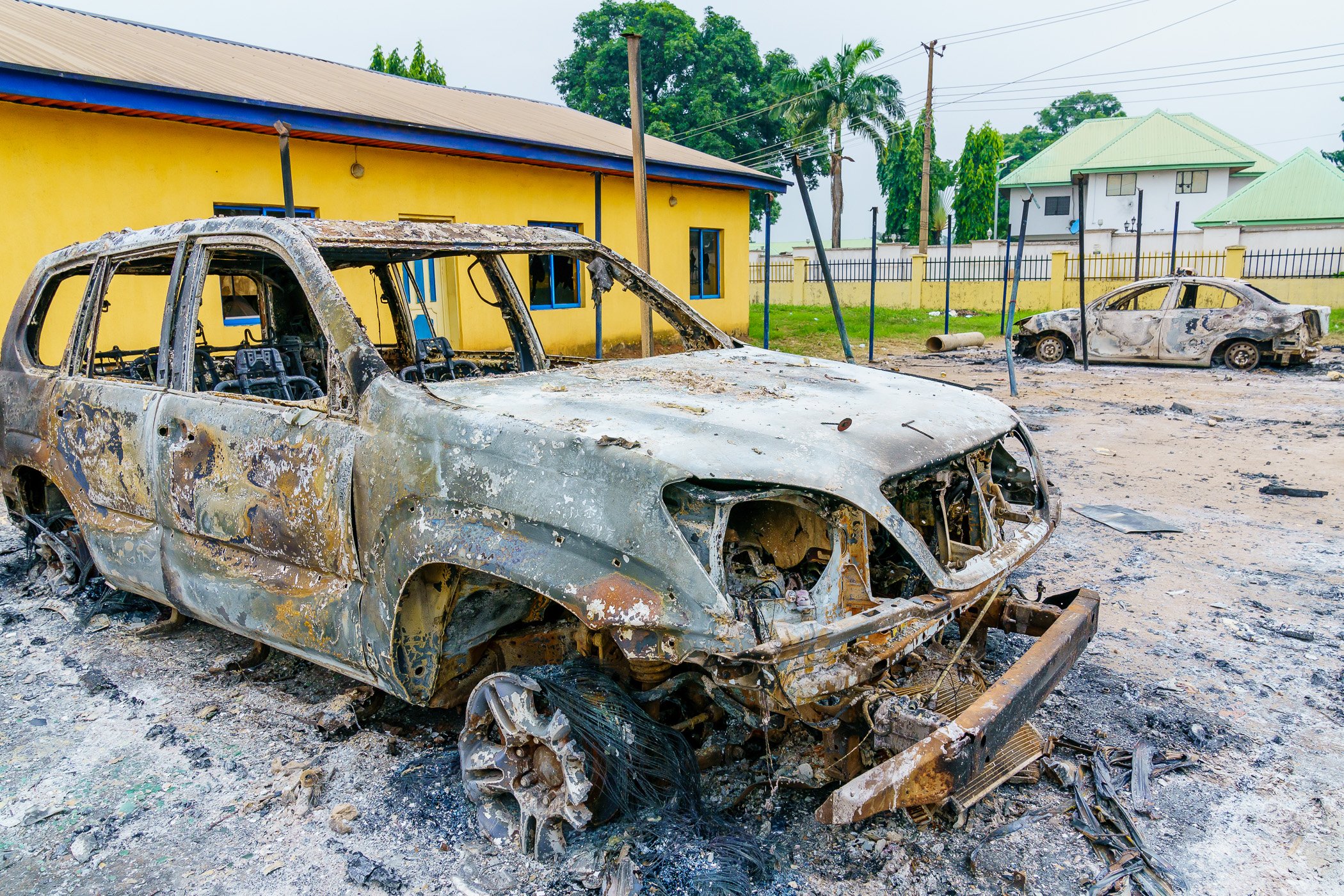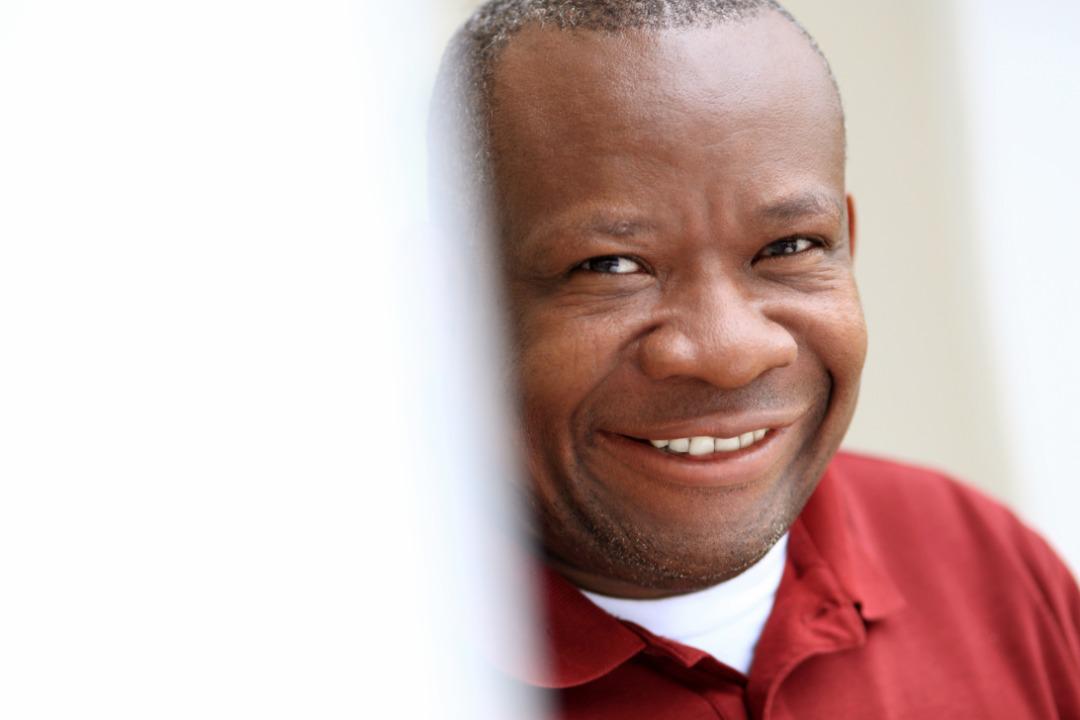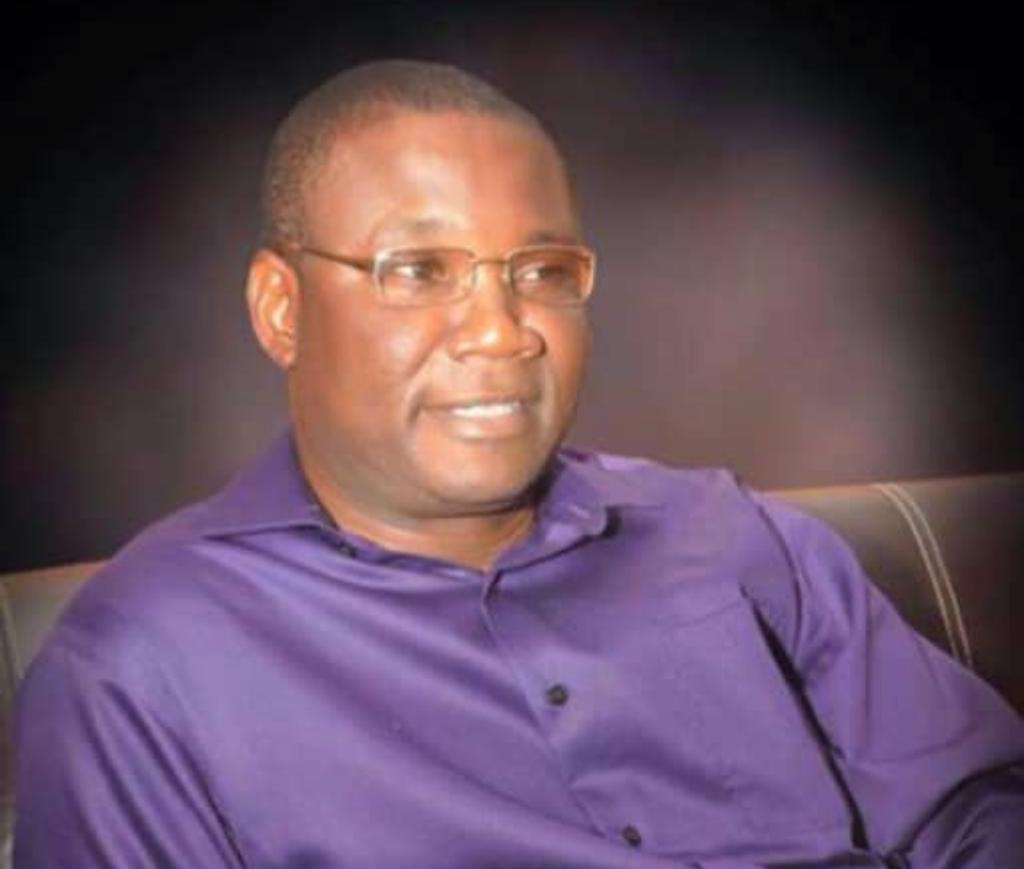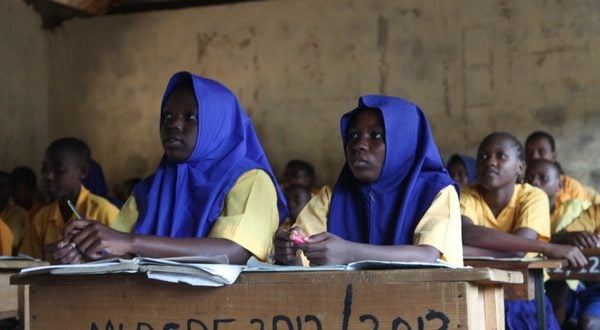Gradually but steadily, Nigeria is descending into darkness and those at the helms of affairs are playing games. On Tuesday, Governor Hope Uzodimma of Imo State literally advised operatives of the Nigeria Police to open fire on those who attack them. “If you can’t attack them, you can at least use your rifles to defend yourselves,”he said when he visited the Nigeria Correctional Service and the state Police Command, which were attacked by gunmen earlier that day. Uzodimma probably still thinks this is a joke.
Should policemen fold their arms when their lives are at risk? I am not suggesting that but it’s something you do not need to tell them.
Using the rifle in self-defence is a fundamental rule of engagement for anyone who serves in such a capacity. As a matter of fact, the concept of self-defence is innate for everyone who has got life in him. If your life is threatened, your first instinct is to defend yourself with whatever you have even if it’s your teeth! So, you don’t need to tell policemen to employ their rifles in self-defence, and if anyone would, it should not be the governor of a state, who was elected to see to the welfare and wellbeing of citizens. Truly, Monday’s unfortunate incident is an attack on the country, but that’s the same reason leaders should reflect on how we got to this juncture where the rain is beating us ceaselessly.
Concerning the governor’s comment, there are three immediate reasons one feels they were flippant and not well-thought-out. The first is that, given what we know of policemen, the statement can encourage a flood of brutality that might lead to extrajudicial killings and worsen the already tense atmosphere in the country.
The second reason is that if push comes to shove, does the Imo State Police Command and by extension, the police have the strength and equipment to take on the multitude of troublemakers that we are currently reading about? Third, do we even know how many of the men in the security forces sympathise with the growing number of bandits and dissidents in the country? I mean, the rain that beat the unemployed youth or the citizen who feels marginalised is the same that beats the policeman and the soldier. Too many Nigerians, including policemen, are discontented with the country and could connive to wreak havoc. The scale of Monday’s attacks suggests that the perpetrators were neither novices nor jokers. That they could mount this type of operation for as long as they did, in an otherwise fortified environment, is something the governor should have pondered before making statements.
Advertisement
Unfortunately, without meaning any disrespect, little or no rigorous thinking goes on in leadership these days. This reflects in every aspect of governance and brings nostalgia of the years when political activities were substantially built on intellectual and philosophical foundations. They remind of legendary statements like; “I have never regarded myself as having a monopoly of wisdom. The trouble is that when most people in public life and in the position of leadership and rulership are spending whole days and nights carousing in clubs or in the company of men of shady character and women of easy virtue, I, like a few others, am always busy at my post working hard at the country’s problems and trying to find solutions to them,” offered by the late politician and thinker, Chief Obafemi Awolowo. It was the same Awolowo who wrote in his book, My march through prison(1985) as follows: “I will more than ever before, subject myself to severe self-discipline. Only men who are masters of themselves become easily master of others. Therefore, my thoughts, my tongue and my actions shall be brought under strict control, always.”But such sentiment is history. Most politicians are now consumed with and drunk on power. They are ruled by their tongues, so they speak without the contemplation that you expect of people in authority.
The Yoruba people say that if a youngster stumbles and falls, he looks forward but when an elder does, he looks backwards to ponder what may have made his trip and devise ways to forestall such vulnerability in future. Anyone who finds oneself in the position of leadership occupies the same position of privilege and should be more introspective. But most of our leaders only understand the cohesive use of power!
In dealing with that unprecedented attack for instance, did Uzodimma find himself ruminating over where this was coming from? About five weeks ago, Uzodimma said the following in the aftermath of a crisis in Orlu: “We discovered that there was a camp which IPOB established at Umutanze, Orlu and we sent police to dislodge them. But, it happened that they attacked the policemen and killed two of them. It was after they killed those policemen that the government had to bring in the military…”
Advertisement
So, three questions: when he sent the military to flush out members of the proscribed Indigenous People of Biafra, did he imagine that it would be the end of the operations of this group? Secondly, has he sat down to consider whether there is a connection between that military action and Monday’s attack on the correctional facility. Thirdly, whether he sees a nexus or not, does he truly imagine that continuous military action would by itself, solve this problem? Indeed, this is very doubtful.
Sadly, he is not alone in this misconceived opinion that force is the only way to get Nigeria out of the palpable discontent across the country. At the time Nigeria proscribed and turned guns on members of the Islamic Movement of Nigeria and IPOB in 2015 and 2017 respectively, we did not have the level of banditry, murder, arson and kidnapping for ransom now prevalent in the North-West, nor the violence that is stealing at the heart of the South-East. Not just that, we only had violence-free agitations for true federalism in the South-West and the South-South. But what do we have now? Threats of violent secession spearheaded by self-proclaimed warlords like Sunday Igboho and Asari Dokubo? If military action hasn’t taken us so far all these years, why do we think force and threats of force will make things better now? Don’t we see that the more the country tried to repress these agitations, the more they got driven underground and now, here we are!
In We kill militant but in vain, an intervention on one of government’s numerous military actions, published in this column on August 4, 2016, I wrote: “…The point is that unless we deal with the situation that breeds these young deviants, military actions would never solve the problem in a sustainable way. For instance, reports on Wednesday indicated that some of those who got out of the military onslaughts alive have started regrouping in Ondo State. We are merely treating the symptoms with these military actions…” We still don’t get it!
Does that then mean that the military and police should go to sleep? Absolutely not, but while we employ military actions in a just and equitable manner, we must deal with several other issues pari-passu.
So, what are the issues? The first is to ensure that justice and fairness such that every Nigerian has a sense of citizenship. Next, the government should engage with respected leaders across the country for a first-hand gauge of people’s feelings. Then, we must confront the challenge of pervasive poverty and provide opportunities for as many young Nigerians as possible to get out of the unemployment market. There are low hanging fruits in agriculture, entertainment and sports where we can quickly engage the minds of people and take them off the reach of evil. And for the umpteenth time, we must reconsider the education of every Nigerian child. Nigeria is currently in an emergency room and urgent wisdom, transcending giving fire for fire is expedient.
Advertisement
Adedokun tweets @niranadedokun
Views expressed by contributors are strictly personal and not of TheCable.
Add a comment







